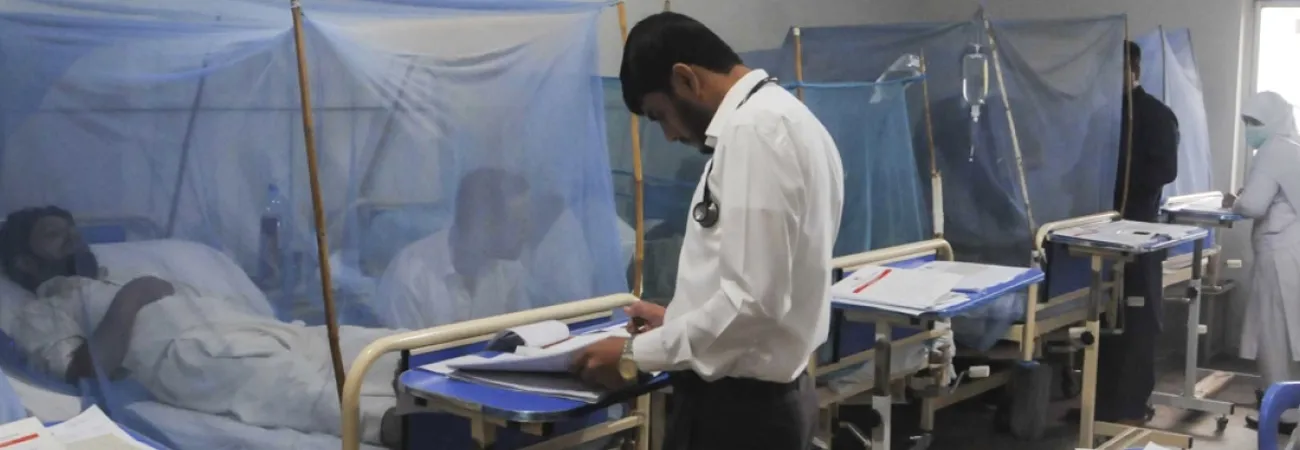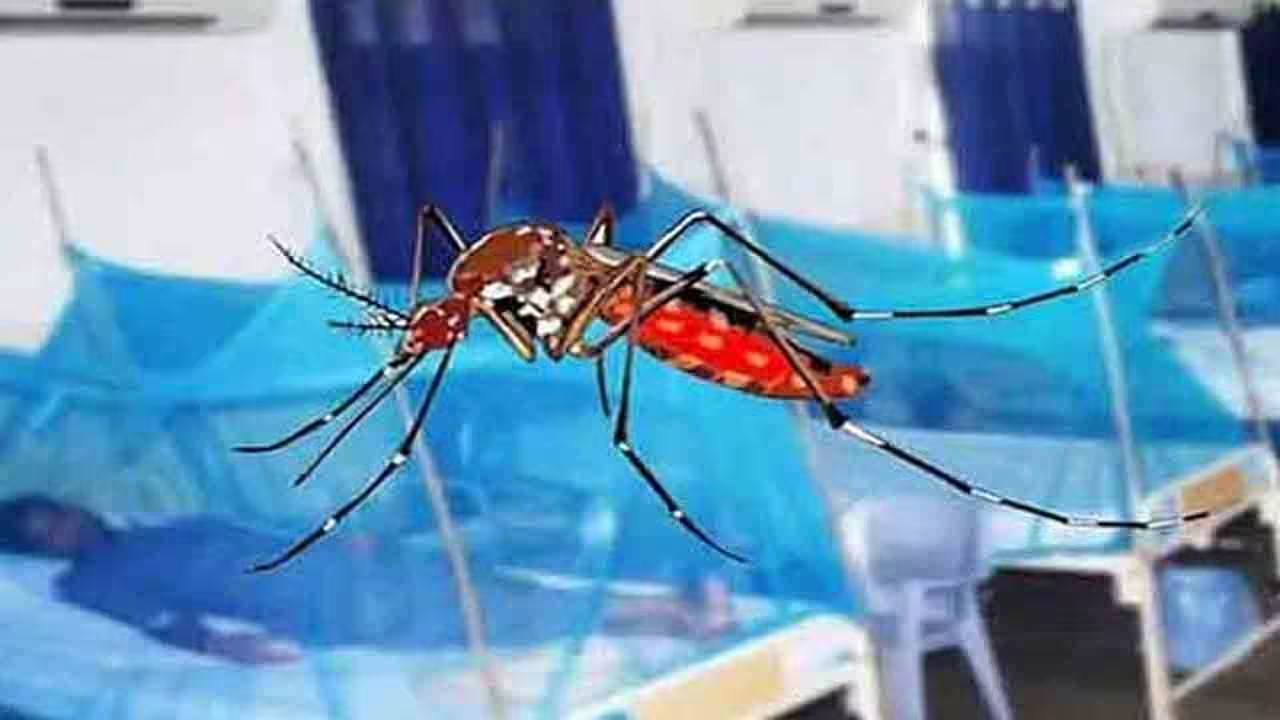The significant increase in dengue cases throughout Punjab, particularly in Rawalpindi, is set to test the capacity of the health sector in the coming days. The government has declared a health emergency in Rawalpindi, where six dengue-related fatalities have occurred recently, leading to numerous hospital admissions in the region.
In the last 24 hours (Wednesday-Thursday), Punjab reported 152 new cases, bringing the total to 2,117 since January.
A Global Challenge
Dengue fever has emerged as a global health challenge over the past two decades, with half of the world’s population now at risk. In 2002, approximately 500,000 cases were reported worldwide. However, this figure skyrocketed to over 6.5 million in 2023, the highest recorded in a single year, resulting in around 7,300 fatalities.
Research indicates that climate change, rising global temperatures, and increased rainfall and humidity create favorable conditions for the spread of dengue.
Understanding Dengue Fever
Dengue fever, also known as break-bone fever, is a viral infection caused by the dengue virus (DENV), primarily transmitted through the bites of infected female mosquitoes, particularly Aedes aegypti and Aedes albopictus, often referred to as tiger mosquitoes due to their distinctive white spots.
Vulnerable Regions
South Asia is particularly susceptible to dengue outbreaks, with Pakistan being severely affected. In 2021 alone, the country reported 52,929 cases and 224 dengue-related deaths.
Symptoms of Dengue Fever
According to the World Health Organization (WHO), many dengue patients experience mild symptoms or none at all, recovering within one to two weeks. However, severe cases can occur, often following the initial fever. Common symptoms include high fever, severe headache, pain behind the eyes, muscle and joint pain, nausea, vomiting, and swollen glands. Severe dengue symptoms may include intense abdominal pain, persistent vomiting, rapid breathing, and bleeding.
Treatment and Management
Currently, no specific treatment for dengue exists. Medical care focuses on alleviating symptoms, with paracetamol often recommended for pain relief. Patients should avoid non-steroidal anti-inflammatory drugs like ibuprofen and aspirin due to the increased risk of bleeding. Those with severe dengue may require hospitalization.
Prevention Measures
Preventive measures are critical, as there is no cure for dengue. Mosquitoes that transmit the virus are active during the day. To reduce the risk of bites, individuals should wear full-body clothing, use mosquito nets while sleeping, and ensure windows are screened. Insect repellents, coils, and vaporisers can also help deter mosquitoes.
Preventing mosquito breeding is essential; efforts should be made to dispose of waste properly and eliminate standing water in open areas. Water storage containers should be covered and cleaned weekly, and insecticides may be applied in small outdoor water sources.
Vaccine Developments
The WHO has approved a vaccine named ‘QDENGA’ for use in some countries, recommended for individuals aged six to sixteen. Other vaccines are also undergoing trials. However, due to the absence of effective treatment options, strict adherence to preventive measures is crucial.
Civic responsibility and collaboration with health authorities are vital to prevent and mitigate the impact of dengue in affected areas.



